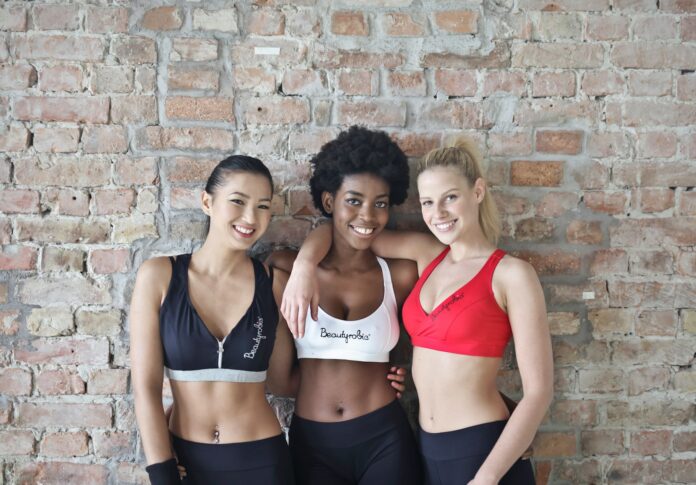Vitamins and minerals are the unsung heroes of fitness, often overshadowed by macronutrients like protein, carbohydrates, and fats. However, these micronutrients are critical for energy production, muscle function, recovery, and overall performance. Without the right balance of vitamins and minerals, even the most rigorous workout regimen can fall short.
Why Are Vitamins and Minerals Important for Fitness?
Micronutrients play several roles that directly impact your fitness journey:
- Energy Production: They assist in converting food into energy.
- Muscle Recovery: Certain vitamins and minerals help repair tissues and reduce inflammation.
- Strength and Endurance: They ensure proper muscle contraction and improve oxygen delivery to tissues.
- Immune Support: A healthy immune system allows you to train consistently without setbacks.
Key Vitamins for Fitness
1. Vitamin D
Role in Fitness:
- Enhances calcium absorption for strong bones and prevents stress fractures.
- Boosts muscle function and reduces the risk of injuries.
- Regulates immune function, keeping you healthy and active.
Sources:
- Sunlight
- Fatty fish (salmon, mackerel)
- Fortified dairy products
2. Vitamin C
Role in Fitness:
- Acts as an antioxidant, reducing exercise-induced oxidative stress.
- Supports collagen production for healthy joints, tendons, and ligaments.
- Boosts immune function, minimizing downtime from illness.
Sources:
- Citrus fruits (oranges, lemons)
- Strawberries
- Bell peppers
3. Vitamin E
Role in Fitness:
- Protects cells from free radical damage caused by intense workouts.
- Improves circulation, supporting better oxygen delivery to muscles.
Sources:
- Nuts and seeds (almonds, sunflower seeds)
- Spinach
- Avocados
4. B-Vitamins (B1, B2, B3, B6, B12, and Folate)
Role in Fitness:
- Essential for energy production and metabolism.
- Aid in red blood cell formation, ensuring efficient oxygen delivery to muscles.
- Reduce fatigue and enhance performance.
Sources:
- Whole grains
- Leafy greens
- Lean meats
5. Vitamin A
Role in Fitness:
- Supports vision, especially in low-light environments (important for evening workouts).
- Strengthens the immune system, reducing susceptibility to illnesses.
Sources:
- Sweet potatoes
- Carrots
- Dark leafy greens
Key Minerals for Fitness
1. Calcium
Role in Fitness:
- Essential for strong bones and teeth.
- Supports proper muscle contraction and prevents cramps.
- Reduces the risk of stress fractures during high-impact activities.
Sources:
- Dairy products (milk, yogurt, cheese)
- Leafy greens (kale, spinach)
- Fortified plant-based milk
2. Magnesium
Role in Fitness:
- Plays a role in over 300 biochemical reactions, including muscle contraction and relaxation.
- Prevents muscle cramps and enhances recovery.
- Boosts energy levels and reduces fatigue.
Sources:
- Nuts (almonds, cashews)
- Whole grains
- Dark chocolate
3. Iron
Role in Fitness:
- A key component of hemoglobin, which transports oxygen to muscles.
- Prevents fatigue and improves endurance.
- Especially important for female athletes, who are at higher risk of iron deficiency.
Sources:
- Lean red meat
- Lentils
- Spinach
4. Potassium
Role in Fitness:
- Regulates fluid balance and prevents dehydration during exercise.
- Reduces muscle cramps and promotes smooth muscle function.
- Maintains proper nerve function.
Sources:
- Bananas
- Potatoes
- Coconut water
5. Zinc
Role in Fitness:
- Aids in muscle repair and tissue growth.
- Strengthens the immune system to prevent workout disruptions.
- Supports healthy testosterone levels, critical for muscle building.
Sources:
- Shellfish (oysters, crab)
- Pumpkin seeds
- Beef
“Micronutrients might be small, but their impact on your fitness journey is massive—fuel your body with the essentials.”
How to Ensure You’re Getting Enough Vitamins and Minerals
1. Eat a Balanced Diet
Focus on a variety of whole foods, including:
- Fruits and vegetables
- Whole grains
- Lean proteins
- Healthy fats
2. Supplement Smartly
While a balanced diet is the best source of nutrients, supplements can help fill gaps. Consider adding high-quality options from Myprotein, such as:
- Multivitamins for comprehensive support.
- Vitamin D supplements for bone health.
- Magnesium tablets for recovery.
Visit Myprotein to explore a range of fitness-focused supplements.
3. Stay Hydrated
Minerals like sodium, potassium, and magnesium are lost through sweat. Hydration ensures these electrolytes are replenished.
Common Mistakes to Avoid
- Over-supplementing: Taking excessive vitamins and minerals can be harmful. Stick to recommended doses.
- Neglecting Variety: Relying on the same foods limits nutrient diversity.
- Ignoring Deficiencies: Signs like fatigue, cramps, or frequent illnesses may indicate a lack of essential micronutrients.
Conclusion
Vitamins and minerals are the foundation of optimal fitness, ensuring your body performs at its peak during workouts and recovers efficiently afterward. By prioritizing a nutrient-rich diet and supplementing where necessary, you can maximize your results and maintain a healthy, active lifestyle.
For more tips on fitness and nutrition, visit News Box. Remember, “the smallest nutrients often have the biggest impact—nourish your body and power your performance.”

